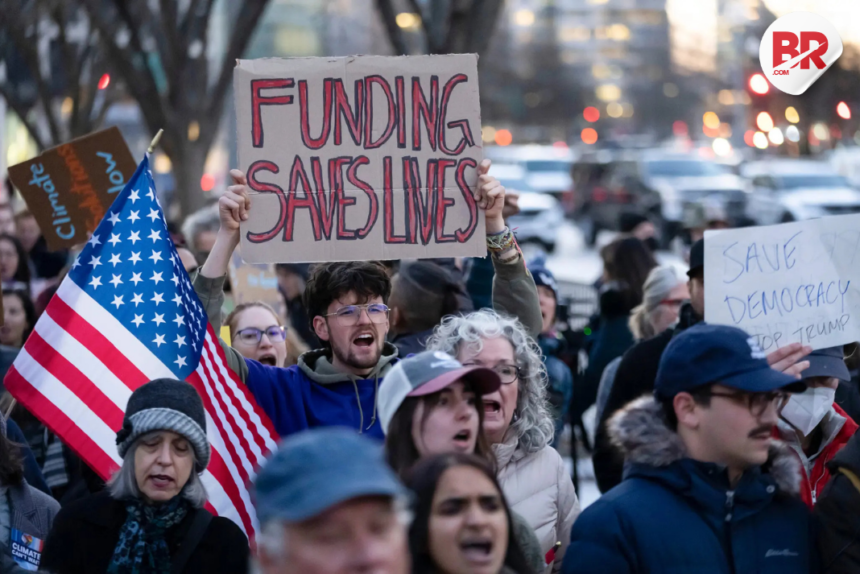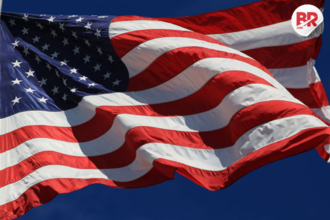
The debate over the Ivy League funding freeze has divided some of the most prestigious universities in the U.S. Former President Trump’s administration implemented the freeze, claiming it was necessary to address rising antisemitism and discrimination on campuses.
This decision has forced universities like Harvard to take a stand, while others, such as Columbia, have appeared to comply. In this article, we explore the key points of the controversy and how different Ivy League schools are responding.

The Core of the Controversy: Antisemitism and Discrimination
At the heart of this funding freeze is the accusation that antisemitism has been increasing on college campuses.
The Trump administration argued that certain universities were not doing enough to address anti-Jewish sentiment or other forms of discrimination. To push schools into action, the government froze federal funds, creating a challenge for universities that rely on these funds for various programs.
Critics, however, claim that the freeze was more about political strategy than solving real issues. Some believe it was meant to rally a specific political base and that it threatens academic freedom.
The move has also faced legal challenges, questioning whether it was an overreach of executive power and if it would hold up in court.
Also Read: Harvard Controversy Offers Trump a Fresh Stage for Populist Politics
Harvard’s Stand: Defending Academic Freedom
Harvard University, one of the most influential schools in the Ivy League, has firmly resisted the funding freeze. Harvard believes in the importance of academic independence and has pushed back against what it sees as unnecessary political interference.
Why is Harvard so resistant?
- Protecting Academic Freedom: Harvard values its ability to research, teach, and discuss controversial ideas without external influence.
- Concerns About Precedent: Giving in to government pressure could set a dangerous precedent, possibly opening the door to further political control over academic affairs.
- Internal Solutions: Harvard believes that it can address issues like antisemitism through its own internal policies, rather than through external mandates.
Columbia’s Approach: A More Compliant Stance
On the other hand, Columbia University appears to be taking a different approach. While the specifics of their response are unclear, it seems that Columbia is more willing to comply with the government’s demands to regain access to frozen funds. This raises the question: Why the difference?
- Financial Considerations: Columbia may rely more heavily on federal funding than Harvard, making them more willing to cooperate.
- Strategic Calculations: Columbia might believe that working with the administration is the best way to resolve the situation without further scrutiny.
- Avoiding Controversy: Columbia could be seeking to avoid becoming a political lightning rod.
Also Read “No Grants Without Obedience”: Trump Blocks $2.2B to Harvard University in Campus Crackdown
The Ivy League Split: Other Schools’ Responses
The divide between Harvard and Columbia highlights the complex nature of this issue. Let’s take a look at how other Ivy League schools are navigating this challenge:
- Yale University: Yale has echoed Harvard’s commitment to combating antisemitism and discrimination, though they seem to be taking a more cautious approach, balancing both academic freedom and external concerns.
- Princeton University: Princeton is working on solutions, collaborating with various groups to address bias on campus while still upholding its independence.
- University of Pennsylvania (UPenn): UPenn has been proactive in addressing antisemitism, showing that it is serious about making its campus more inclusive.
- Cornell University: Like UPenn, Cornell is focused on open dialogue and maintaining an environment where all students feel safe.
- Dartmouth College: Dartmouth has expressed a commitment to fostering an inclusive culture, working to eliminate all forms of discrimination.
A Dilemma for Ivy League Schools
The funding freeze has created a difficult dilemma for Ivy League universities. Each school is balancing a commitment to academic freedom with the need to address real issues like antisemitism.
Harvard and Columbia’s contrasting approaches are just the beginning. The decisions made by these universities will have long-term implications for how universities deal with political pressure and how they handle serious social issues like discrimination.
The battle over Ivy League funding is far from over, and its outcome will likely shape the future of academic freedom in the U.S.
Also Read Obama Slams Trump’s $2.3bn Freeze on Harvard: ‘A Ham-Handed Attack on Academic Freedom’












